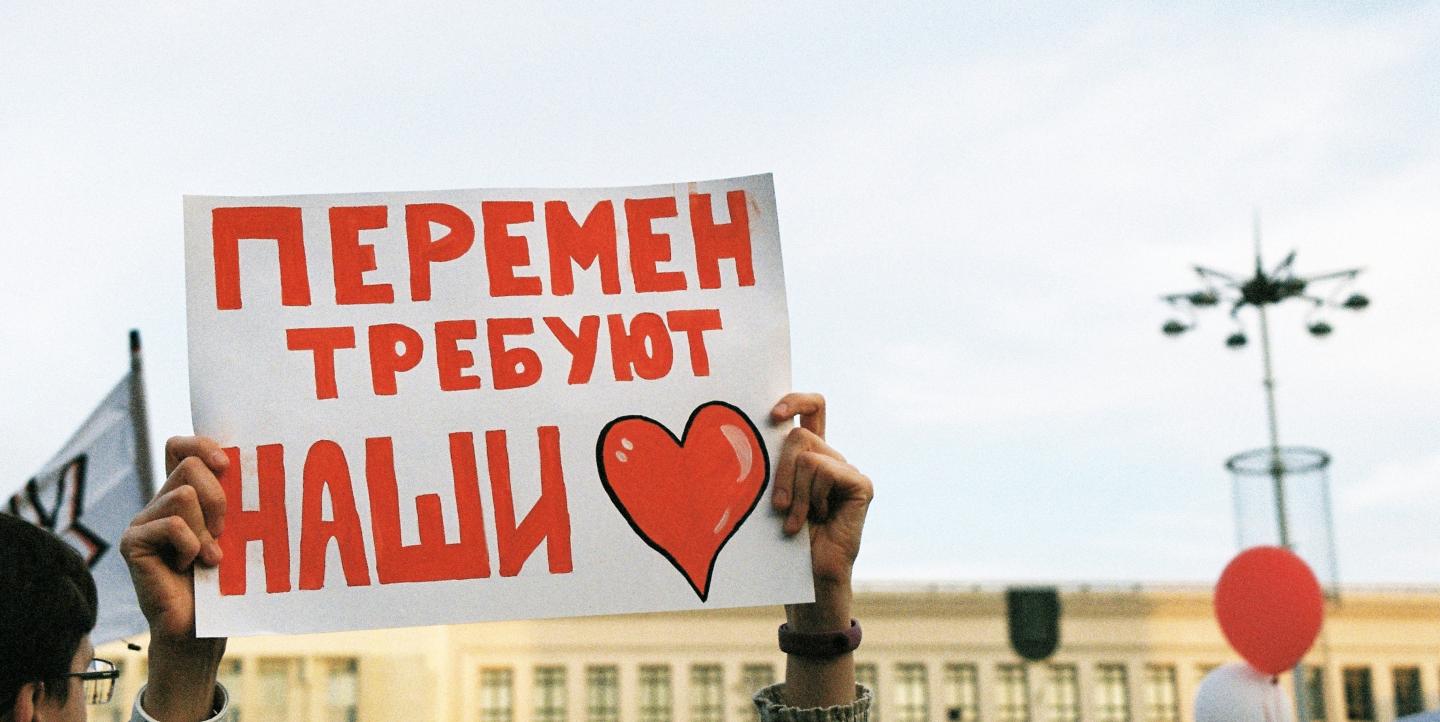Belarusian independent journalists have been through a lot since 2020: the COVID-19 pandemic, protests and political repression, and war in neighboring Ukraine. Many journalists have been forced into exile. Not to mention the general challenges they face working in the media industry.
Many media workers today are in need of mental health support, as a result.
Since 2020, hundreds of journalists have applied for such support from the Belarusian Association of Journalists, said the organization’s press secretary, Barys Haretski. “Journalists have lost almost any semblance of stability. But I think the majority don’t seek help — they come only in a really difficult state, when they can no longer cope on their own,” he said.
I spoke with Belarusian journalists about how the crises they have experienced have affected their mental health. They also shared with me how they continue to live and work in challenging conditions, as well as how editorial offices can support journalists.
Victoria
Victoria* has worked in Belarusian journalism for more than six years.
After the onset of COVID-19 in 2020 – as the country prepared for and held its elections, and amid the repression and protests that followed — she felt emotionally empty. She was tormented by anxiety and insomnia and had little time to rest, she recalled.
“Ideally, journalists need to separate themselves [from the information they receive], but everything that happened in 2020 in Belarus directly affected our lives and future work,” she said. “We were well aware that Lukashenko’s ‘victory’ in the elections would affect each of us. When I saw hundreds of thousands of people on the street standing up for freedom and democracy, I felt an incredible surge of emotions.”
Among these emotions was constant fear: protests ended with stun grenade explosions, protesters were beaten with batons, and arrests followed.
“You went to work and weren’t sure that you’d make it back home,” she said. When it became clear that Lukashenko wouldn’t back down, Victoria suffered major emotional trauma. She lost weight, slept poorly, and was tormented by constant nightmares that still haven’t ended even three years later.
Victoria's fears were well-founded, as many of her fellow journalists were arrested. “Starting in October 2020, it was common to write letters to colleagues in prison, collect packages, and work at protests without identification to avoid becoming a target. I consider myself very lucky — I was detained only twice and for short periods. I didn’t end up in prison, but I lived in fight or flight mode until I left Belarus in June 2021,” she said.
Despite the increased physical safety it offered, leaving the country didn’t abate the toll on Victoria’s mental health. She still has difficulty dealing with the injustice of the situation in Belarus.
“In 2021, they came to my parents’ house with a search warrant in connection with a criminal case against me. This put an end to my dreams of seeing Belarus and my family in the near future,” she said. “During my two years in exile, two close relatives died and crackdowns in the country continued. I’m just afraid of another search and, god forbid, someone being arrested.”
The war in Ukraine has brought anxiety anew; a journalist's day often starts off with shocking news.
As she loses touch with her audience in Belarus, and works anonymously for security reasons, Victoria has turned to a psychologist for help. She tries to distract herself and find the good in life — to live for today and hope for the best.
Olga
Victoria's story is not an uncommon one for Belarusian journalists these days.
Olga* studied journalism in Minsk in 2020, and she entered the profession during the 2020 protests. Her coverage of them while still in school led to pressures, and ultimately she was expelled and later arrested for 30 days. In the summer of 2021, she left Belarus, planning to stay abroad for a month. She still hasn’t returned.
Olga moved to Kyiv, but in 2022, war broke out in Ukraine and she had to move again. She enrolled in a university elsewhere in Europe, and her studies were intensive. In the newsroom, she worked long hours covering the challenging topic of repression in Belarus.
In April of this year, Olga went on sick leave and spent time in a day hospital in Lithuania. She worked with a psychotherapist for a month and today takes antidepressants. She is working to improve her life, primarily professionally.
Natalya
Natalya* left Belarus at the end of 2020, a few months after the country's presidential elections. Before leaving, police held her for more than a day in a windowless cell. They threatened her with criminal charges, and authorities began to put pressure on her family members, too.
Natalya went to a rehabilitation facility in Latvia for a couple weeks. She was unable to return to Belarus due to the threat of criminal prosecution. She lived in a refugee camp for six months, which made a powerful impression on her: “I never thought that I would find myself in such a place. But it turned out that I was quite capable of surviving there.”
Her mental health worsened after the start of the war in Ukraine. Her father also passed away in Belarus around the same time.
“I have already learned to live with depressive episodes,” she explained. “They haven’t stopped since 2020. It’s hard, but I’m trying to accept that I have to live with them and treat myself with antidepressants, psychotherapy, special exercises and walks.”
Sergei O.
Psychologist and trauma therapist Sergei O. works with Belarusian journalists.
“Journalists came to me with symptoms of PTSD, including the return of painful memories and emotional dissociation. Some obsessively returned [mentally] to the places where they were arrested and revisited these thoughts. Others, in contrast, avoided contact with [their trauma] as much as possible,” he said.
Many of the Belarusian journalists Sergei encountered were injured during their work. Assistance for journalists, he suggested, may include leaves of absence, adjusted work hours, referral to psychologists, and physical activity.
“It’s important to remember that post-traumatic experiences do not go away on their own,” said Sergei. “They can be selectively repressed, but this doesn’t reduce their negative impact.”
*The names of journalists have been changed for their safety. Belarusian authorities continue to persecute independent correspondents and put pressure on their family members remaining in Belarus.
Photo by Jana Shnipelson on Unsplash.
This article was originally published on IJNet Russian and translated by Nick Flynt.


